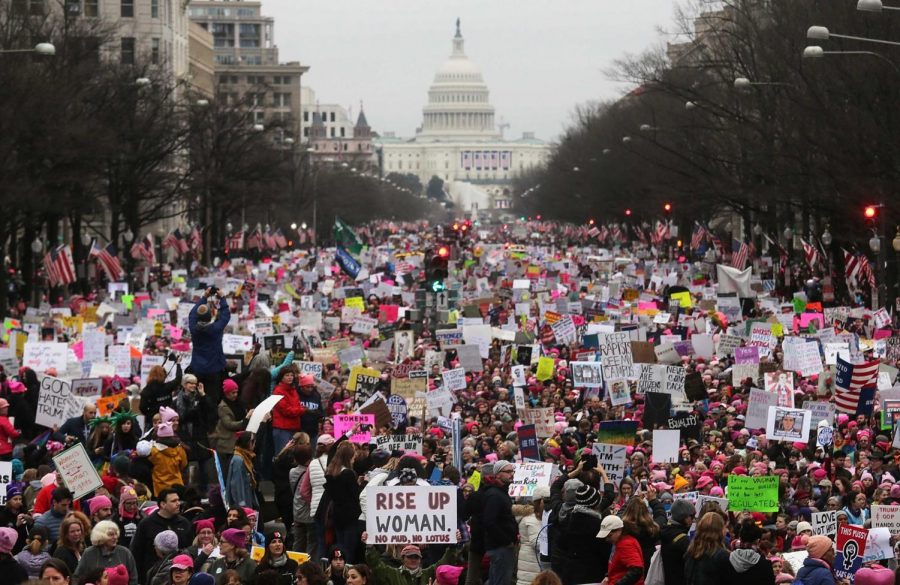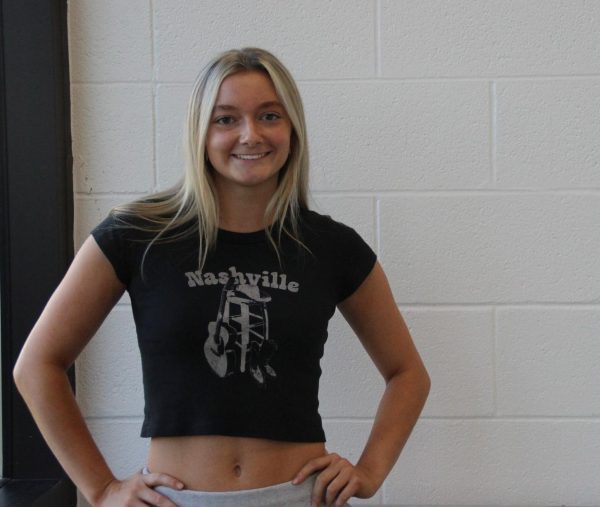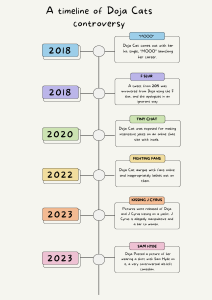Women Around The Country Protest New Restrictions On Reproductive Rights
Thousands of women come to protest in Washington D.C
December 8, 2021
On December 1st the Supreme Court heard the state of Mississippi present a case that, if upheld, would only allow abortions to happen before fifteen weeks of pregnancy.This was nearly three months after Senate Bill 8 was passed in Texas, better known as The Texas Heartbeat Act. This is a law that inhibits any women from having an abortion in Texas after six weeks gestation. Now with these new challenges and restrictions in place, women’s rights organization known as Women’s March has dedicated their two most recent marches in D.C to protest the potential Mississippi ban and the new Texas abortion ban that has been passed.
Women’s March is an all-female run organization that not only advocates for women’s rights but also for equality among all. They do this by organizing protests, spreading awareness through social media, and holding digital trainings.
Nearly 100,000 people attended the event on October 2nd 2021 in Washington D.C. In response to to Texas´s new abortion laws. A mass of protesters carrying signs saying “protect women’s rights” and “abortion is a woman’s right” marched from Freedom Plaza all the way to the White House steps.
Among the speakers at the event was CEO and president of Planned Parenthood, Alexis McGill Johnson, who spoke about the effects of the recent ban in Texas and the effect it is having on other states as well. She ended her speech encouraging people to fight for their reproductive rights.
“The power to determine what happens to our bodies, our lives, our futures. For every woman. Every trans man. Every nonbinary person. Anyone who may EVER need an abortion: We own it. It’s ours.”
Along with the October March in D.C there was also considerable turnout throughout the whole country. All fifty states and almost seven hundred cities participated in the protests.
Another speaker at the march in D.C, NCAA swimmer and advocate for trans athletes Schuyler Bailar, spoke about how t LGBTQIA+ people need access to abortion as well.
“I am a transgender man, which means that although I am a man, I was assigned female at birth, which means that I have a uterus. Which means that I could get pregnant. Which means that I could need an abortion,” he said. “I am here to remind you to make it absolutely clear that people of all genders can have abortions, and people of all genders should have safe and legal access to abortions.”
The most recent march was similar to the one in October, except this time it was held at the supreme court. Thousands of people turned out to protest Mississippi´s new fifteen week restriction proposal.
“Hundreds of us showed up to the Supreme Court to make our voices and our resistance heard,” Women’s March writes on their official Instagram. “Today and every day, no matter what the justices decide, well never stop fighting for abortion justice and free,legal, and accessible abortions for all.”
But unlike the previous march, the Women’s March group was met by anti-abortions protesters who came to urge the Supreme Court to rule in favor of Mississippi.
“We’re asking God to give the Supreme Court justices wisdom as they deliberate the future of unborn children in the U.S.” Says anti-abortion protester Jerry Prevo.
Texas and Mississippi are just two of the twelve states that already have laws passed to completely ban abortion.This means that, if the Supreme Court sides with Mississippi and overturns Roe v Wade, these laws would be in effect immediately. As for the other thirty eight states they would then have the authority to outlaw abortions at any time.
Although the Supreme Court hasn’t made a ruling on the Texas or Mississippi case, Rachel O´Leary Carmona, the executive director of Women’s March, says they will continue to fight for what’s right.
“It was Day One of a fight that we’re waging, in all 50 states, to make abortion legal, accessible and free for everyone in America,” she says.









